Past TRiP Projects
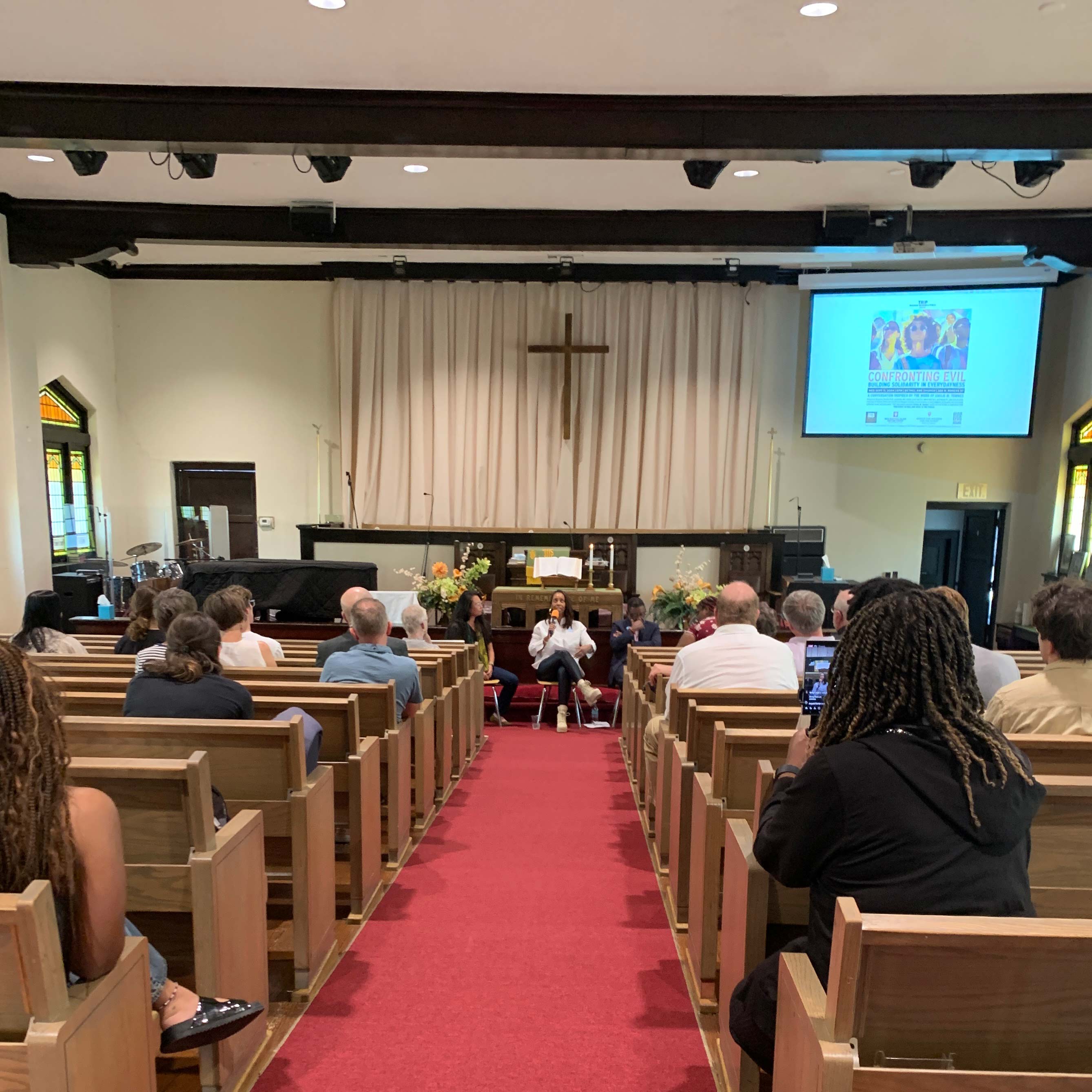
In September 2024, TRiP organized a community conversation inspired by the work of Dr. Emilie M. Townes who gave the Center for Religion and the Human’s 2024 Charles H. Long Memorial Lecture. Religious Studies Doctoral candidates Mihee Kim-Kort and Amber Lowe were joined by Professor of African American and African Diaspora Studies Randal Jelks in the historic sanctuary of Bethel African Methodist Episcopal Church in downtown Bloomington to lead an informal discussion around religion, community, and practicing solidarity in our everydayness—a concept drawn from the work of Dr. Townes.
Engaging Religion Workshop
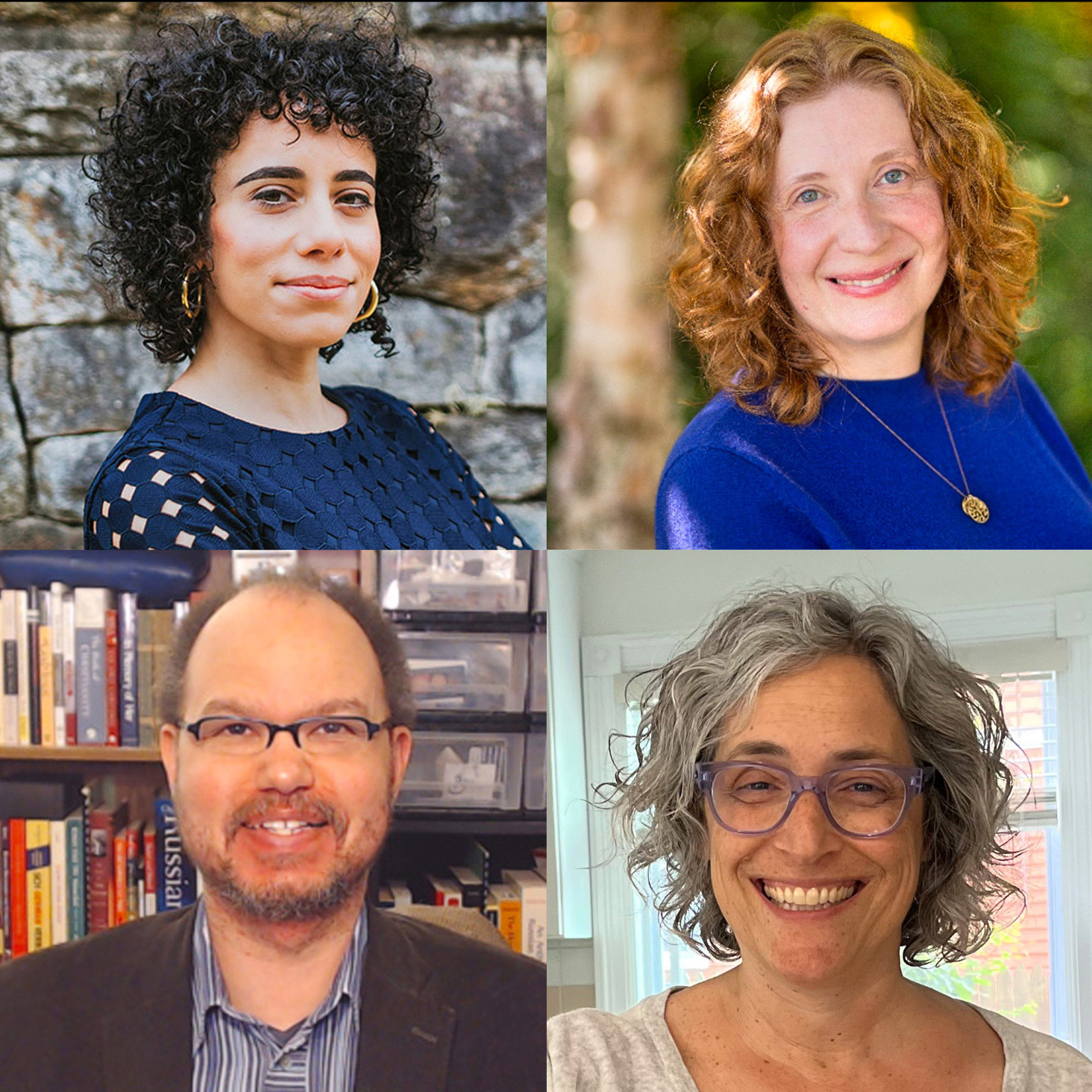
In September 2023, TRiP hosted four scholars for Engaging Religion, a workshop that showcased a variety of means, methods, and experiences of engaging religion within and outside academic spaces. The featured guests were: Mona Oraby, editor of The Immanent Frame and co-creator of A Universe of Terms: Religion in Visual Metaphor; Heather Miller Rubens, Executive Director at the Institute for Islamic, Christian and Jewish Studies; Rebecca Schorsch, high school teacher and dramaturge for The In[Heir]itance Project’s Exodus in America Community Performances; and Joe Bartzel, author of a project on truth and reconciliation in the city of St. Louis and a Religion, Spirituality, and Democratic Renewal Fellow at Washington University.
Abroad in America

In August 2023, Religious Studies Doctoral candidate Jessica Merritt organized and hosted a one-of-a-kind teaching workshop called Abroad in America: Strategies for International Students Teaching in US Classrooms. This gathering brought faculty, graduate students, and associate instructors from an array of disciplines and departments together to reflect on and brainstorm around teaching in contexts foreign to ourselves. Some of the questions Jessica asked participants to consider were: what if I am initially unfamiliar with the material I will be responsible for teaching and grading? What kind of knowledge and practices will be valuable to me even if I do not plan to teach in the United States after graduation?
THiNGS
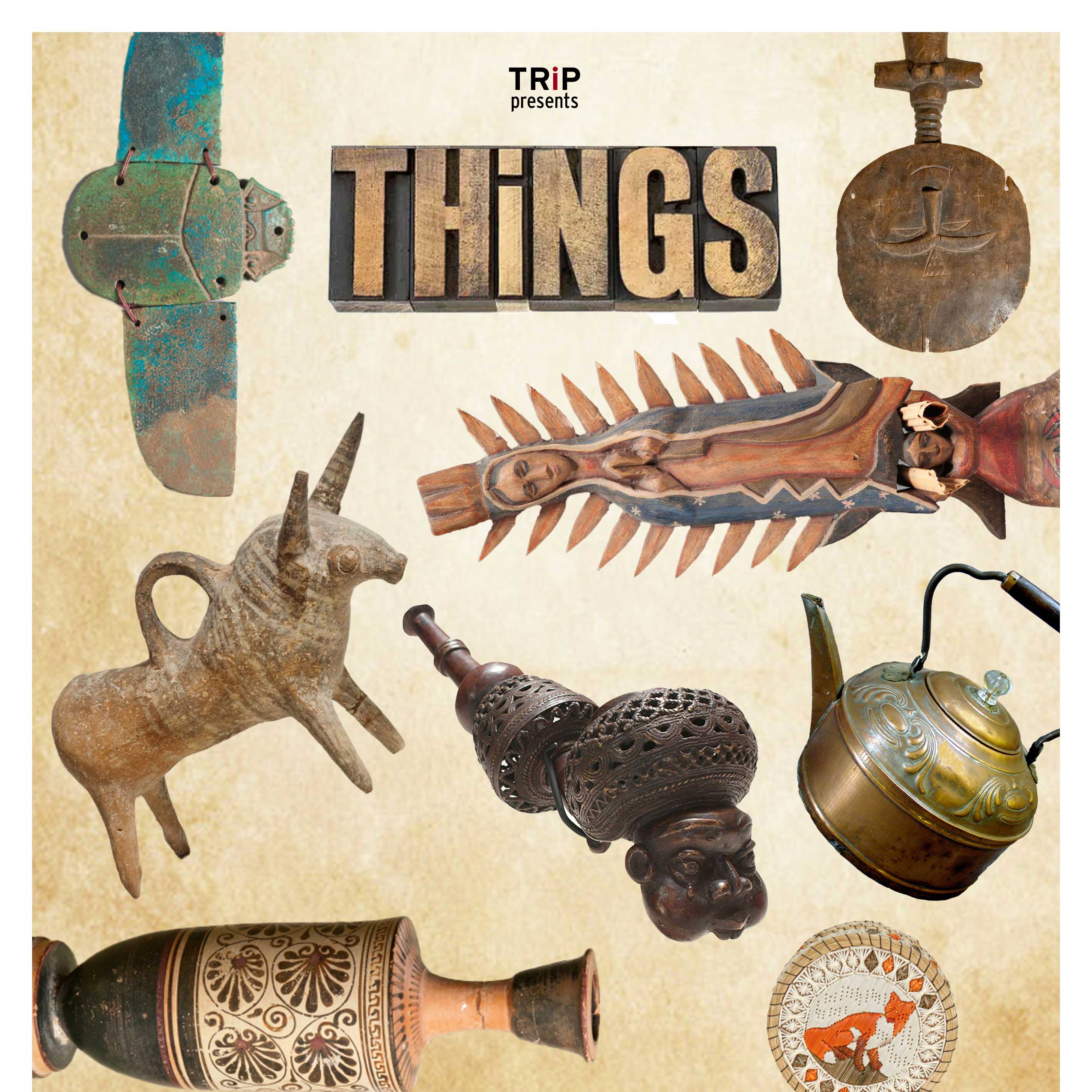
The Spring 2023 TRiP series was organized by Religious Studies graduate student Blake Garland-Tirado and Professor Constance Furey and oriented around the pedagogical uses of THiNGS, particularly objects housed in museums, archives, and special collections, with special attention to when and how these objects are understood to have—or to lack—religious significance. Sessions were oriented around questions fundamental to our pedagogical practices: what objects are categorized as accessible to public touch, and which are kept out of reach? How do we handle objects that are offensive or otherwise dangerous? How are objects classified and what do those classifications reveal about our values and ideas of materiality and representation?
Afrofuturism and the Post-Human
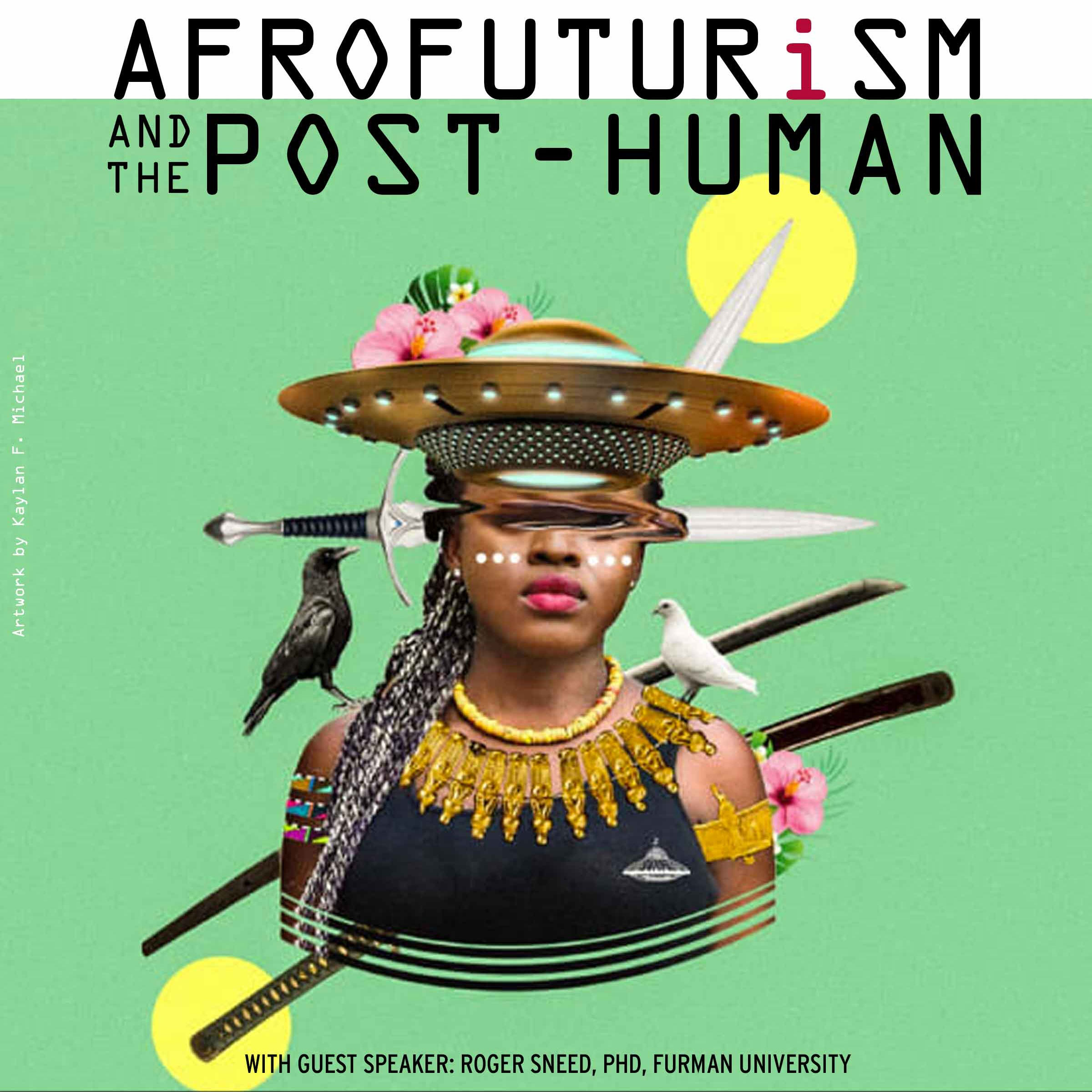
In Spring 2022, Religious Studies graduate student Amber Lowe and Professor Stephen Selka invited reflections on the concepts of Afrofuturism and the post-human. Their workshops were inspired by questions such as: is Religious Studies equipped to address what it means to move beyond the category human? How do the methods of Religious Studies allow us to imagine life beyond earth? Do we as scholars attend to the fact that humanity evolves—in all senses—and how that evolution impacts religion? One session featured Dr. Roger Sneed, Chair of Religion at Furman University and a discussion of his recent work on Afrofuturism and Black Religious Thought.
Race
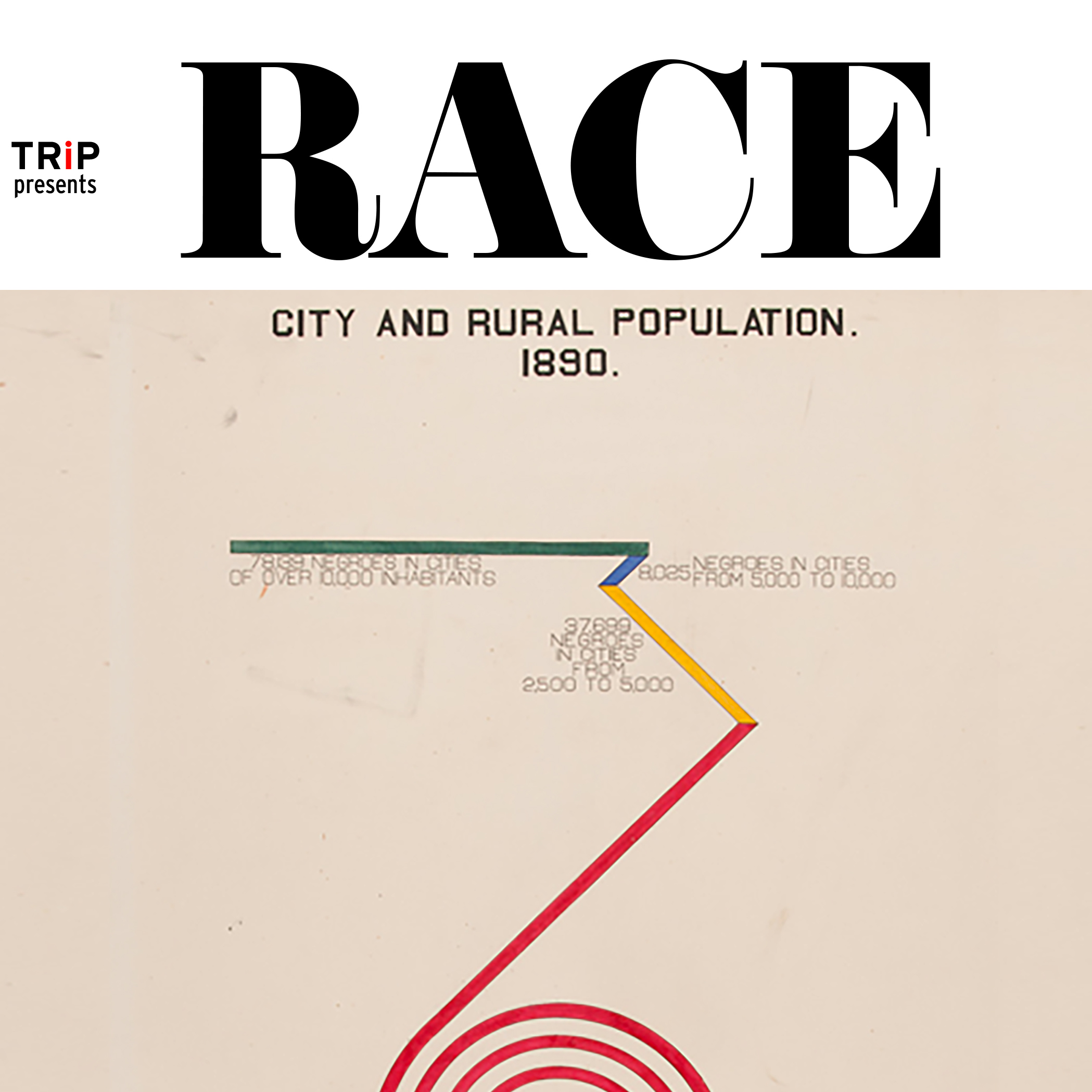
In Fall 2021, Religious Studies Professor J. Kameron Carter and graduate student Morgan Barbre led a set of discussions with the category of race. Their series took up the question of pedagogical possibility amidst ever-encroaching surveillance when teaching about race (or being perceived as teaching about race incorrectly) comes with high stakes—stakes that are higher for some more than others. How might we think with our students about, with, inside of, and beyond the category of race amidst these conditions?
Scripture
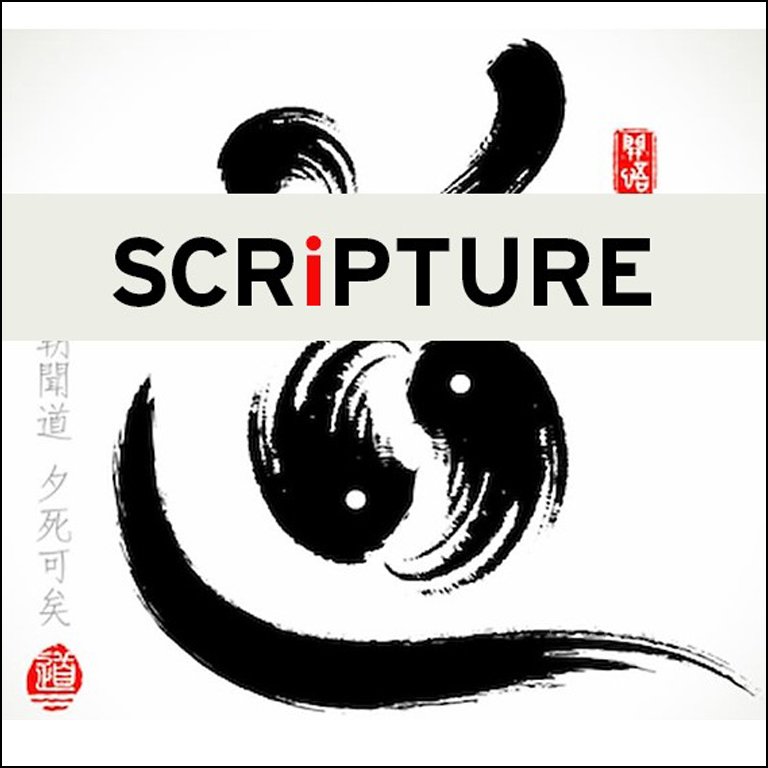
In Spring 2021, TRiP workshops—convened by graduate students Naiyi Hsu and Yuyuan Zhang and Professor of Religious Studies Constance Furey—explored the pedagogical stakes of canonization and reverence. This “Scripture” series asked participants: how do we teach texts deemed uniquely authoritative without being constrained by questions of authority or power dynamics? What can be learned by shifting attention from specific scriptures to the category itself?
Failure

In Fall 2020, graduate student Dale Spicer and Professors of Religious Studies Laura Carlson Hasler and Cooper Harriss led a series of discussions around failure in the classroom. Taking cue from their claim that “religion has a lot to say about failure and so do scholars of religion,” this trio opened conversation around how we teach about and around failure. Should we teach students to be suspicious toward narratives of failure and civilizational decline? What kind of power is exercised when we name something as failure?
Practice
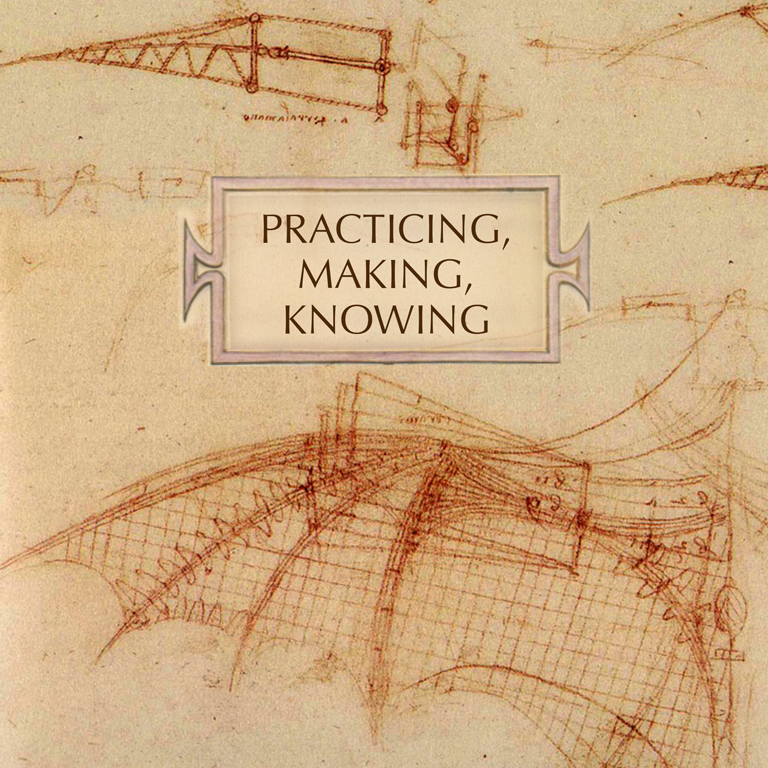
In Spring 2020, graduate student Josie Wenig and Professor Sonia Velázquez led a series of interactive workshops oriented around concepts of practice. As the duo’s proposal described: “Practice denotes both the work that we do, and the preparatory process by which we approach mastery. It can be both infuriatingly repetitive and comfortably habitual. It also unites religion, pedagogy, and thought in uncertain, sometimes uncomfortable, yet ultimately generative ways. Whether in research or teaching, we are always engaged in practice as much as thought. And yet, in spite of these connections, speaking about practice in the context of the study of religion remains a fraught subject. We teach (about) practice to publics that may or may not be themselves practicing, in some religious or other sense. But further, do we practice what we teach?”
Difficulty
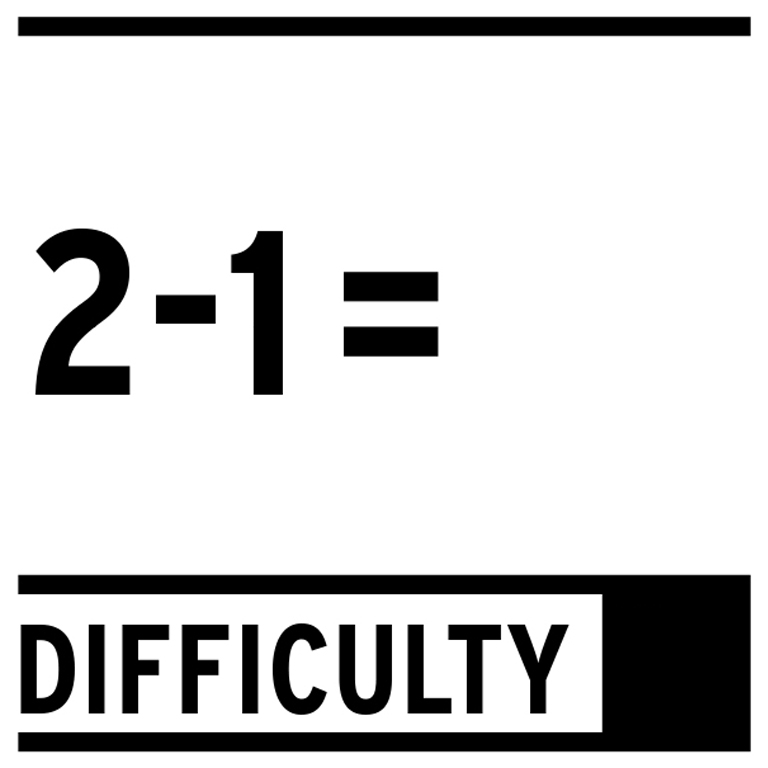
In April and November of 2019 Professor of Religious Studies Rick Nance and graduate student Taylor Thomas invited participants into a conversation about difficulty. Teaching is hard—should we try to make things easier, either for ourselves or for our students? What is gained, and what is lost, when we paper over—or when we avoid papering over—the hard stuff? Over several meetings, Professor Nance explored a series of exhibits that embodied, pointed to, or created different forms of difficulty—forms that taught us about our own predispositions and temptations as teachers and students of religion.

As part of the “Difficulty” series, TRiP also hosted a conversation with Joy Brennan, Professor of Religious Studies at Kenyon College, around her essay published on The Immanent Frame titled “On disciplines and non-knowing: A reply to Agnes Callard.” Religious Studies graduate students and Associate Instructors Allison Darmody and Hannah Garvey opened the discussion with responses to Professor Brennan’s invitation to reflect on non-knowing in the religious studies classroom.
2019 Teaching Religion in Public beginnings
TRiP began during the Spring term in 2019 with a gathering led jointly by Religious Studies graduate students Josie Wenig, who had recently returned from the Weaving Knowledge Workshop in Thailand, and Naiyi Hsu, who specializes in Confucian and Daoist texts. This pairing of seemingly unrelated topics prompted wide ranging discussions about what teaching involves, where religion can be found, and how encountering religion outside the classroom might change the way we teach and learn. These discussions continued across three subsequent events in Spring 2019.

In March 2019, IU Professor of Information and Library Science John Walsh presented “Spider-Man and Swinburne: Modeling Text Corpora in Pop Culture and Victorian Poetics.” Professor Walsh discussed ways to make—arguably religious—archives accessible and analyzable to public audiences digitally.
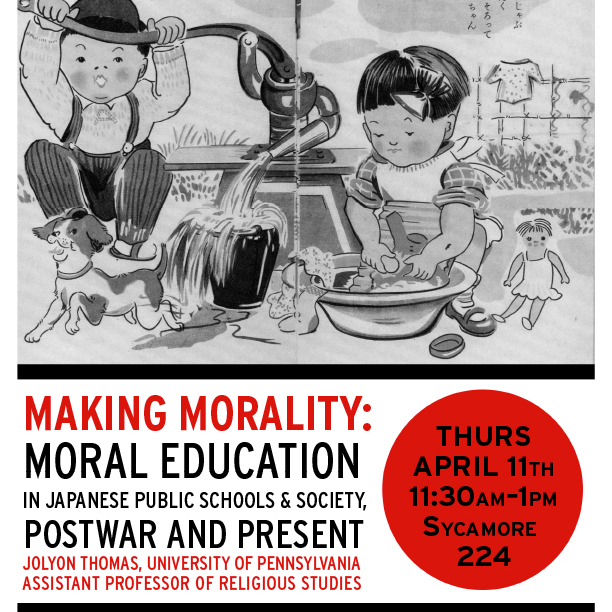
In April 2019, Professor of Religious Studies at University of Pennsylvania Jolyon Thomas hosted a workshop for faculty and graduate students on moral educational training that occurs in Japanese schools. The workshop opened conversations that continued at his public lecture: “Making Morality: Moral Education in Japanese Public Schools, Postwar and Present.”
Also in April 2019, Religious Studies graduate student Meng Zhang and Religious Studies alumna Erin Parks led a joint workshop to consider the realities of teaching religion for two very different publics. Meng discussed how the educational goals of Yuela Academy, an institute at Hunan University, are entangled with its self-identification and public engagement. She asked: do we have similar or different understandings of the goal of education? Erin shared her experience of personally shifting from an “idea presenter” in the lives of children to her current role as an “in the difficulty” mentor to over 160 children in the Bloomington community. She asked: Do our responsibilities as educators change when we give adolescents the responsibility of living in the tension of uncertainty? When we expose them to the monumental task of defining one’s own framework of decision making?

